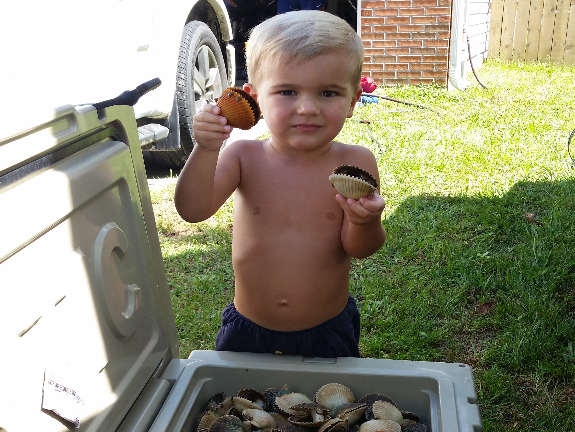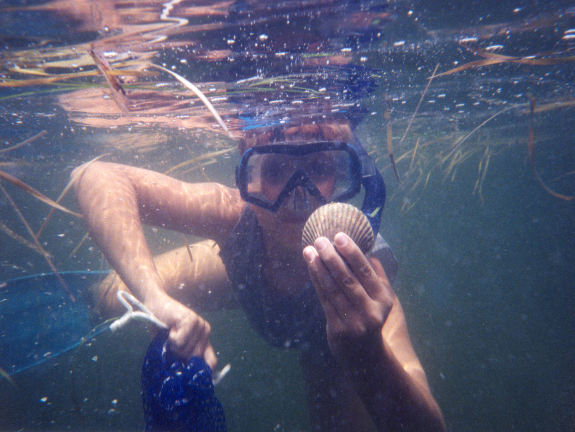Summertime in North Florida is an awesome time of year if you like to harvest and prepare your own seafood from local waters. In my area, around Wakulla and Franklin County, scallop season runs from July 1 – September 24. In St. Joseph Bay, another popular scalloping area in Gulf County, the season spans from August 14 – September 24.  Therefore, in the spirit of “sharing the love,” here is my recipe for a day with family and friends that you will never forget and will eagerly anticipate repeating each year as summertime approaches.
Therefore, in the spirit of “sharing the love,” here is my recipe for a day with family and friends that you will never forget and will eagerly anticipate repeating each year as summertime approaches.
Three parts: “local knowledge”
– Study boating access points and local water depths/tides
– Talk to locals about best places to find scallops
– Ask others for their favorite scallop recipes
Four parts: “the right gear”
– Masks, snorkels and mesh bags are a must
– Dive fins and small dip nets are helpful
– Dive flag on display is required when swimming
– Bring a bucket for measuring your catch
Two parts: “a little luck”
– Sunny days and clear water are best for seeing scallops down in the seagrasses
– Winds below 10 knots make boating and snorkeling more pleasant
Five parts: “paying attention to the details”
– Know the rules on Licenses, gear, limits and season dates
– Conduct equipment checks on snorkel gear, boat/trailer, and required safety gear
– Boat safely and cautiously near swimmers and over shallow seagrass beds
– Keep young children close, watch the weather, and know local hazards for boaters
– Don’t forget the sunscreen and adequate hydration for all
And a healthy pinch of: “enthusiasm,” with a helping attitude for first-timers
– From the first one you spot nestled down in the seagrass, to the last one of the day, you will never tire of the thrill
– Reassure first-timers that the seagrass is a fascinating environment, not a scary place, by showing them its wonders (i.e. sea stars, burrfish, spider crabs, etc.)
– Teach proper shucking technique with a curved blade to avoid wasted meat
Yield: A full day of memories and an incredible culinary experience
– A limit of scallops is two gallons (in the shell) per person currently, with no more than 10 gal per boat. Ten gallons of scallops in the shell will allow you to fix a feast of scallops, prepared several ways. We like to marinate some in Italian dressing then grill on skewers, sauté a batch with garlic and butter, and deep fry some with a light breading. Throw in a fresh batch of coleslaw, some hush puppies and laughter around the table to top it off and your day will have been a true success. Oh, I will also say that you will be thoroughly exhausted and will probably get one of your best nights of sleep since last summer’s scallop season.
 0
0
